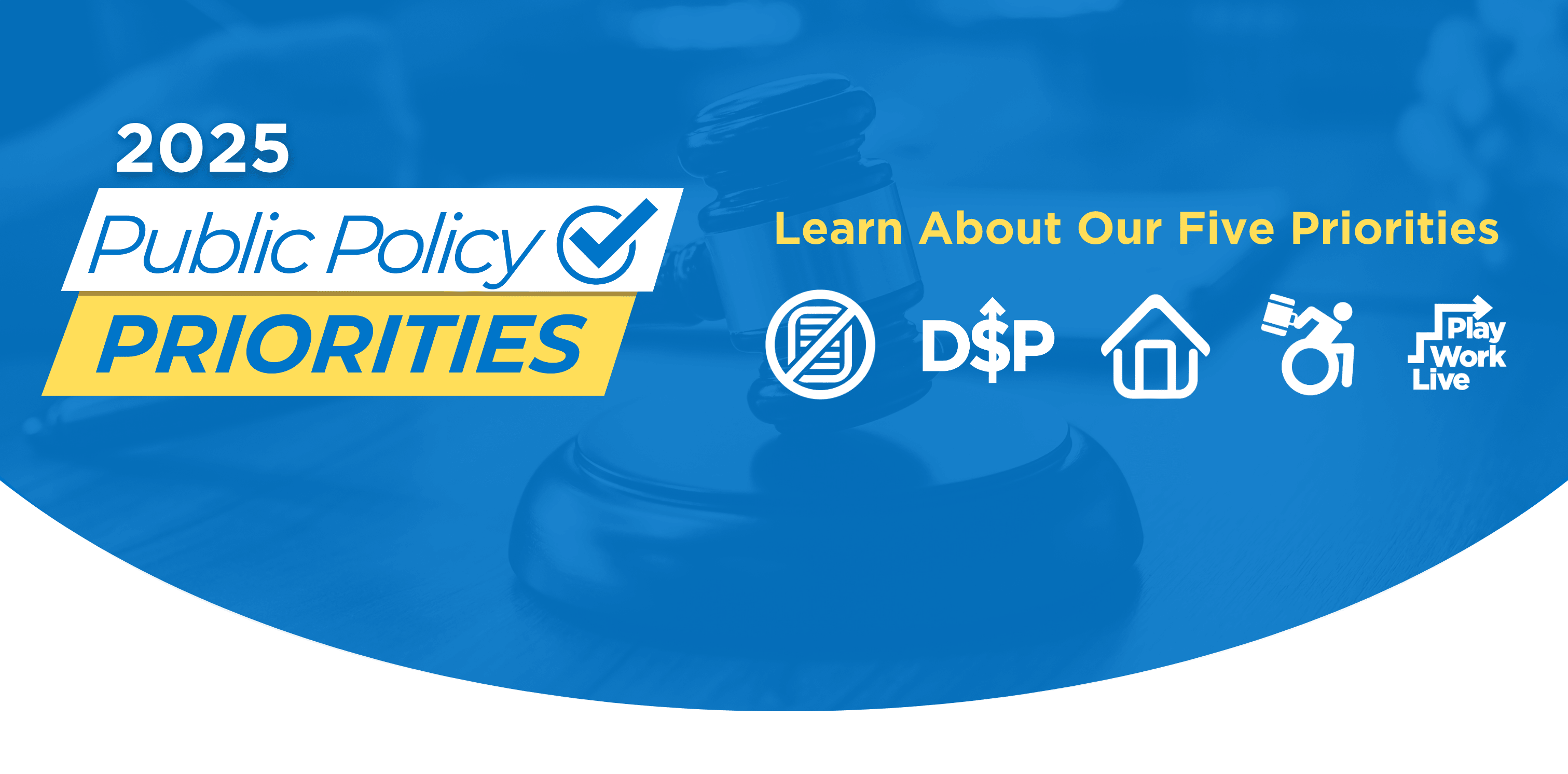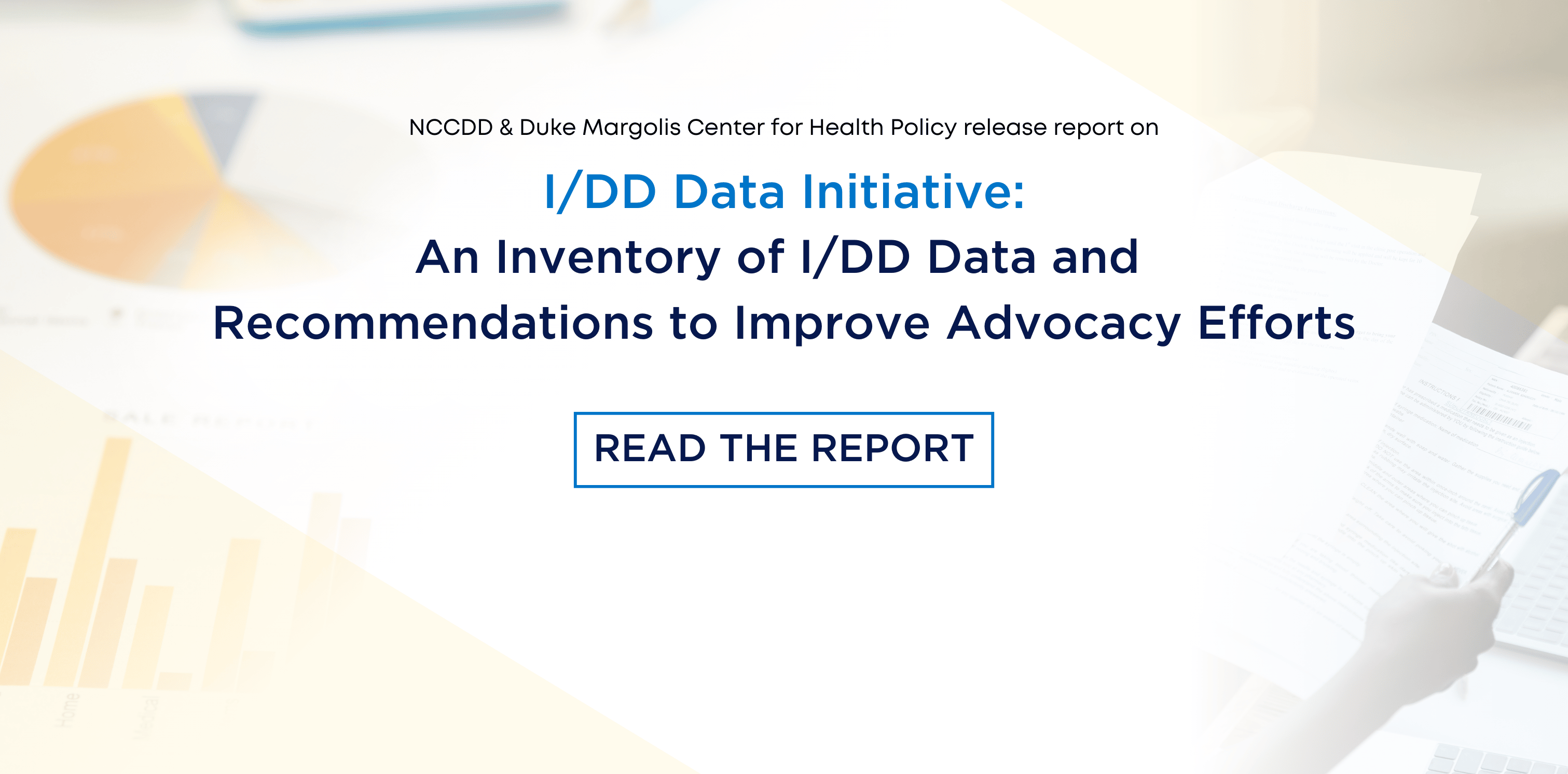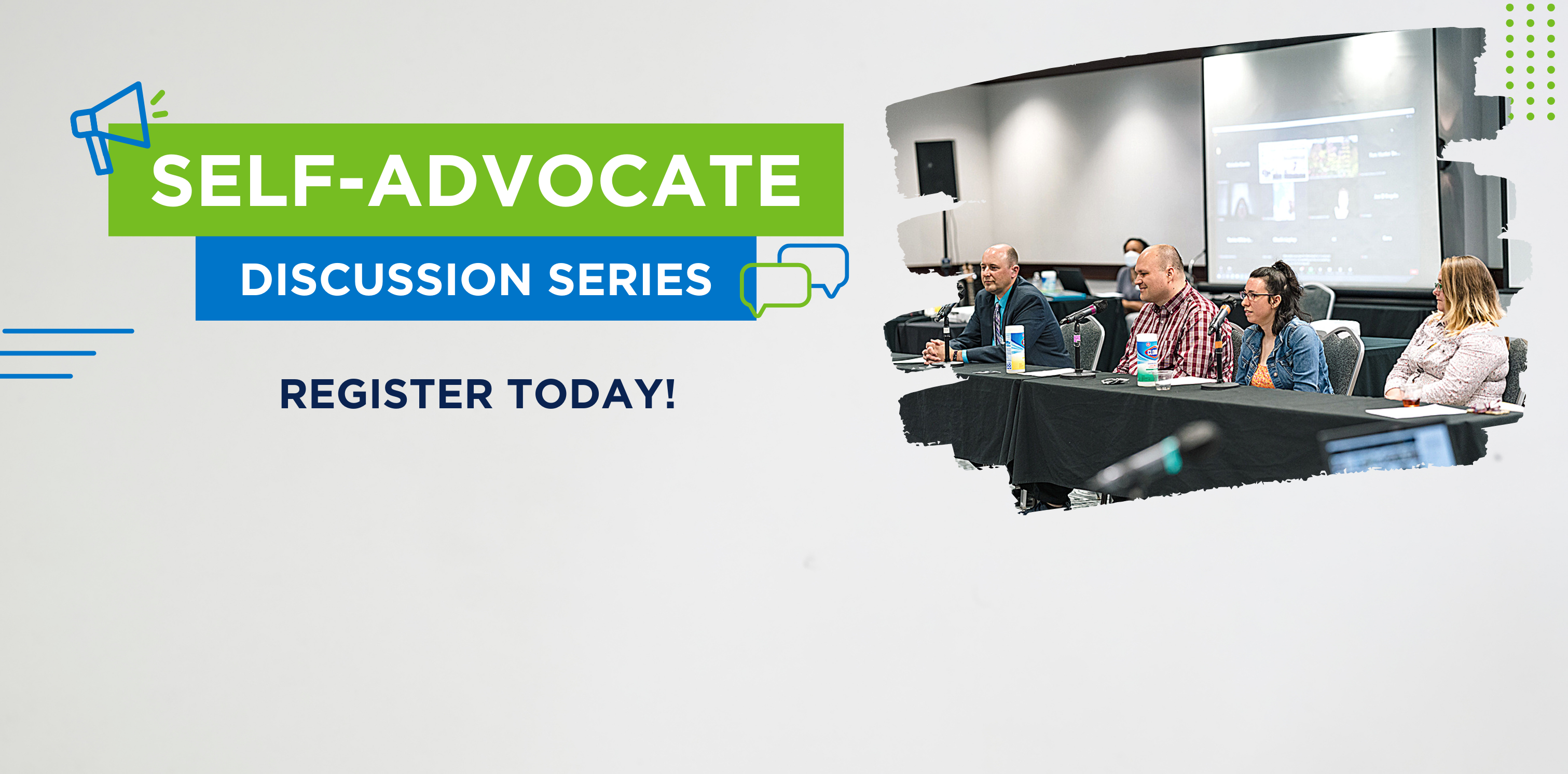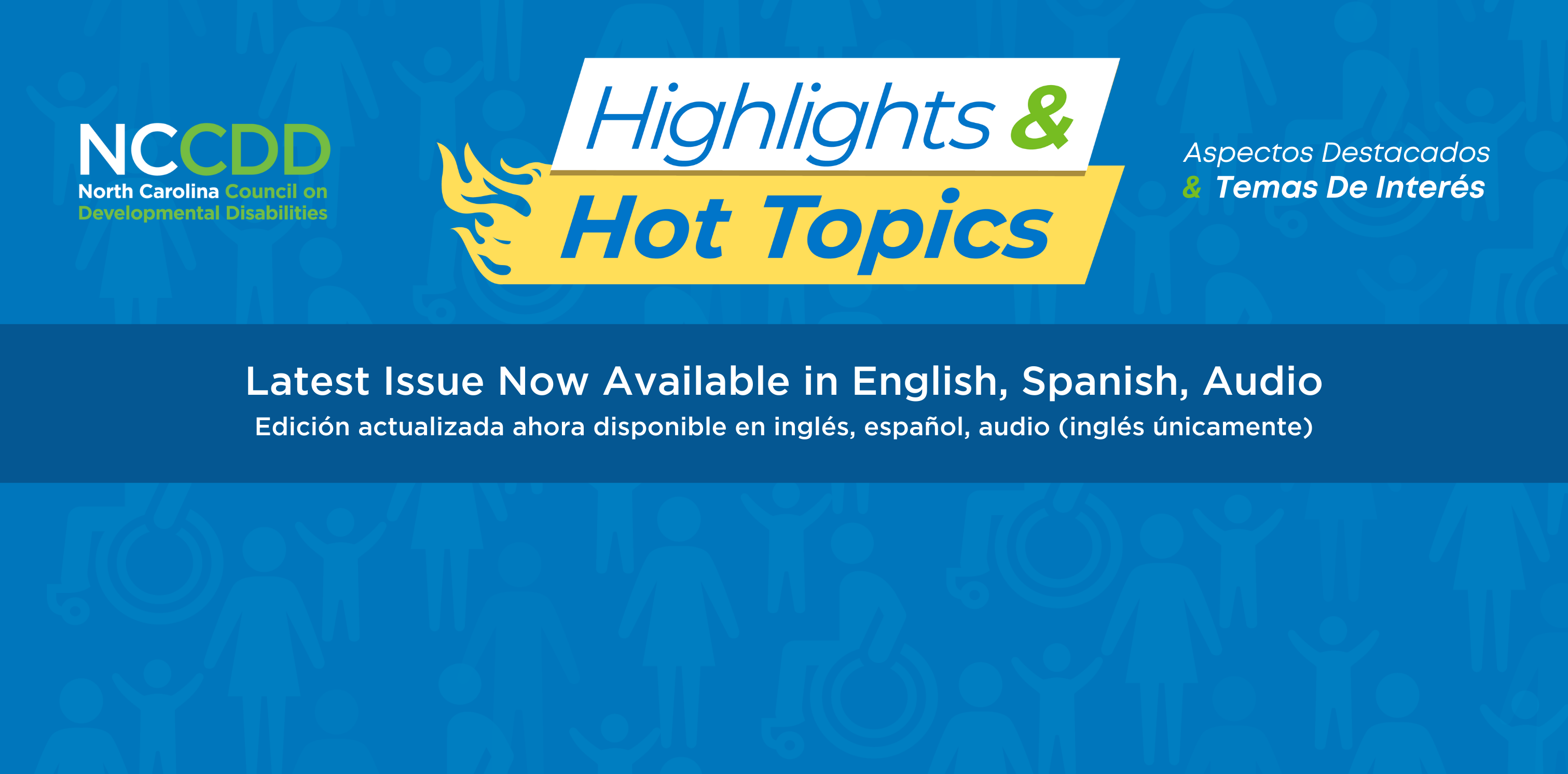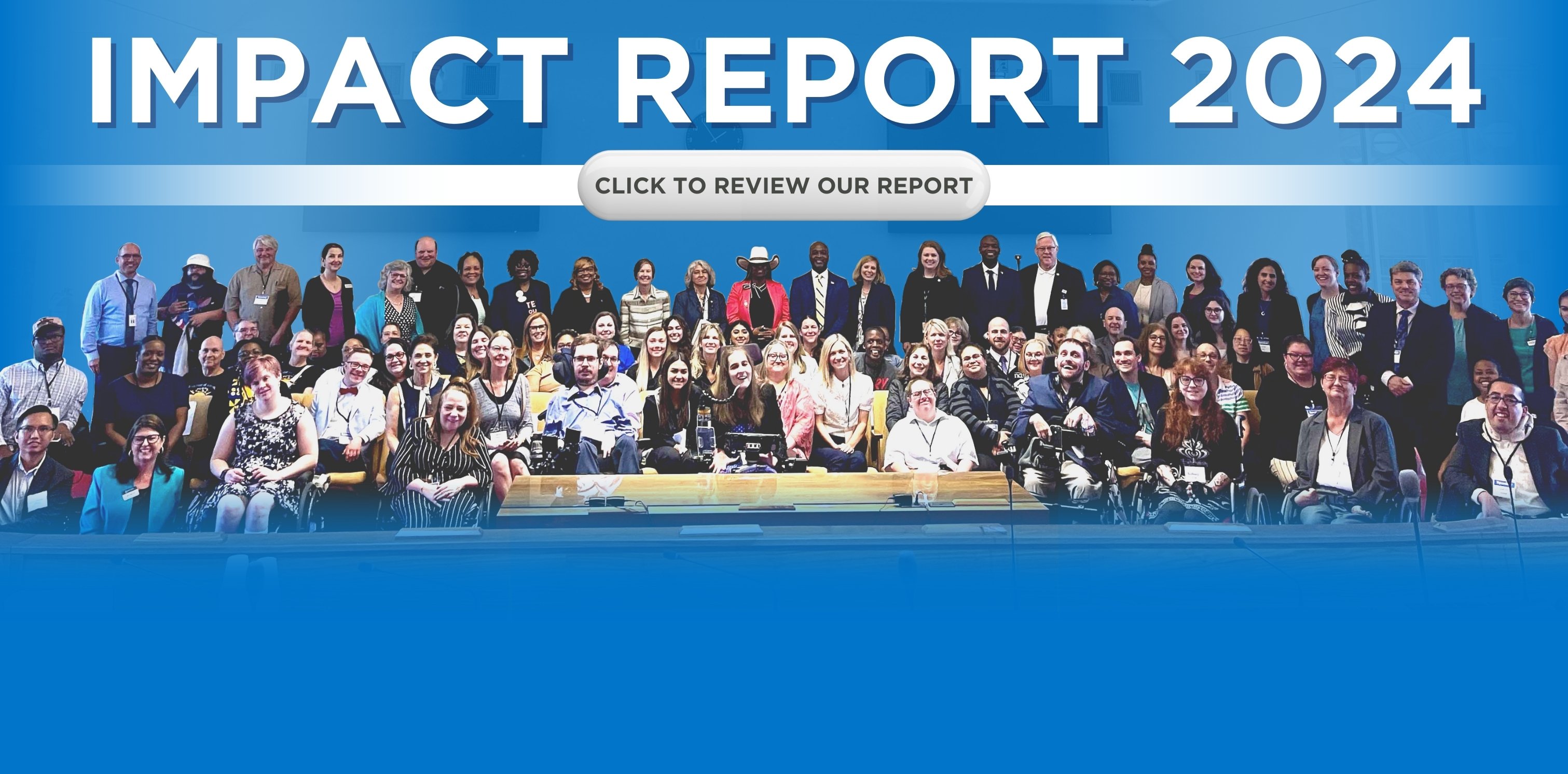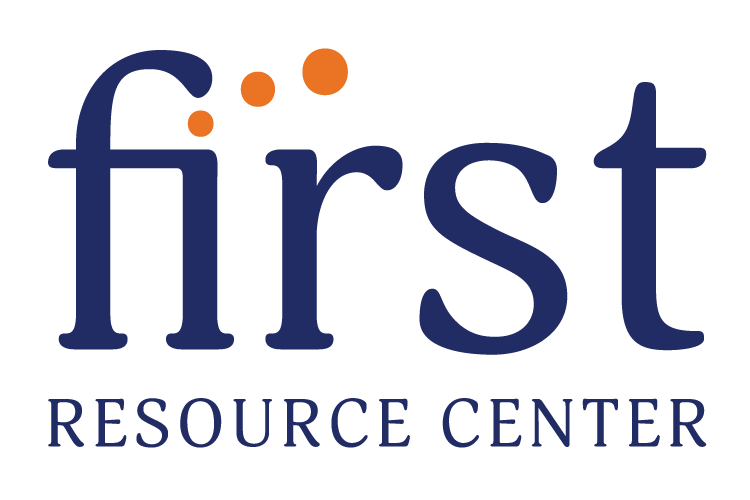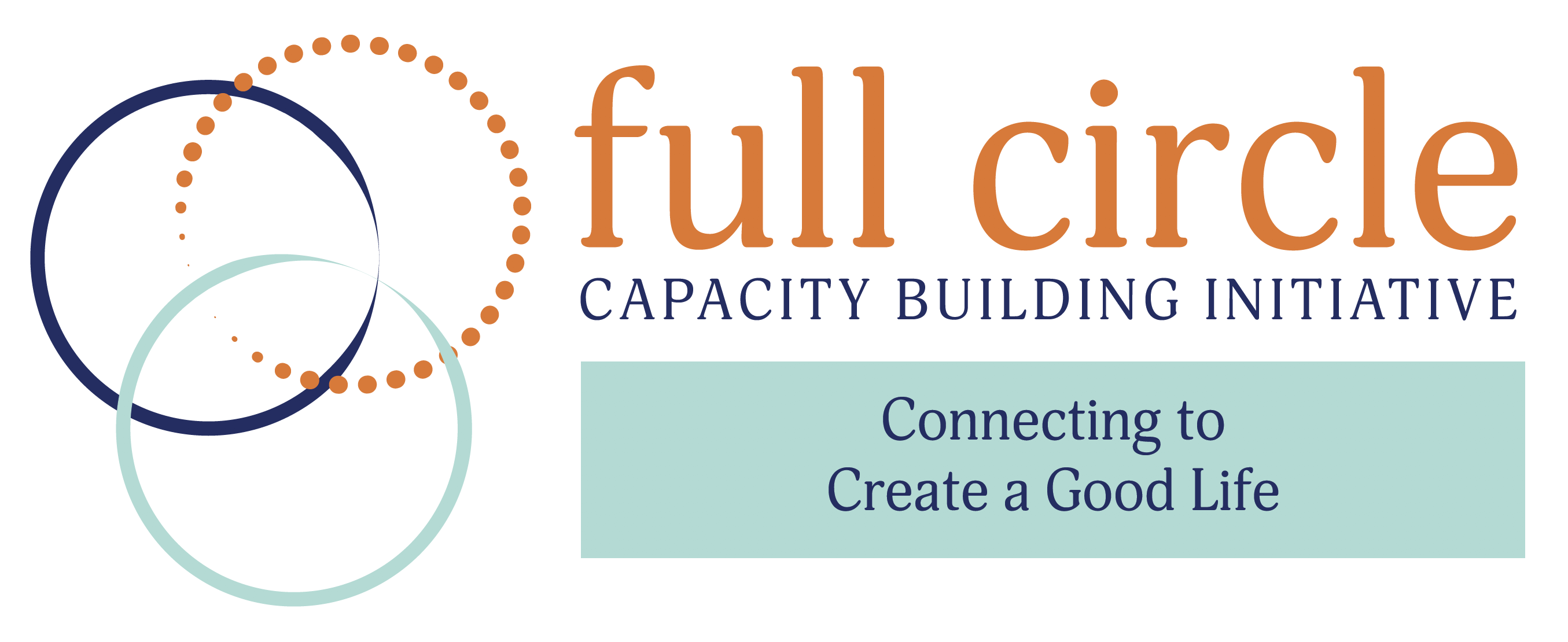 Welcome to our New Natural Support Resource Portal!
Welcome to our New Natural Support Resource Portal!
We are excited to share the portal of resources, videos and tools created to help teams create personal support networks. The tools include Full Circle Planning Guide for Community Connectors, Full Circle Information for Families and Friends and Full Circle - Planning for a Good Life.
Login to our portal, and register to see these resources, worksheets and the videos of training topics. (Note: After you register online, you will receive an email with a password to login to the resources.)
In its state plan, NCCDD sets out the goal that the Council will increase community living for individuals with intellectual and other developmental disabilities (I/DD) by increasing healthy community relationships. To reach this goal, the NCCDD has committed its funds to promote systems change innovations that will establish supportive strategies toward expanding non-paid natural supports while identifying and remove barriers that hinder the opportunity for individuals with I/DD to develop natural supports.
Why is NCCDD funding this initiative?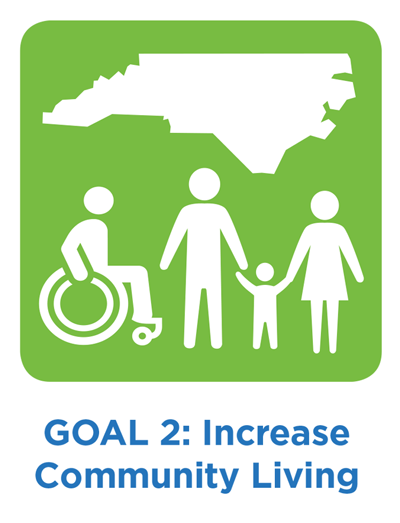
- Many individuals with intellectual and other developmental disabilities (I/DD) face isolation and loneliness.
- The National Core Indicators (NCI) Adult Family Survey, State Outcomes, North Carolina Report for 2015-2016 data found that 29 percent of individuals with I/DD do not have friends other than paid support workers or family.
- To become a contributing member of the community, a person must have friends and acquaintances as well as participate in reciprocal relationships that are not based on the person’s disability. This process of relationship building can allow natural supports to form.
- The Lanterman Developmental Disabilities Services Act in California defines natural supports as:
“personal associations and relationships typically developed in the community that enhance the quality and security of life for people, including, but not limited to family relationships; friendships reflecting the diversity of the neighborhood and the community; association with fellow students or employees in mainstream classrooms and workplaces; and associations developed through participation in clubs, organizations, faith communities, and other civic activities.” - The North Carolina Council on Developmental Disabilities (NCCDD) intends to fund an initiative focusing on the importance of non-paid relationships in the lives of individuals with intellectual and other developmental disabilities (I/DD) in North Carolina that will foster opportunities for natural supports to develop and sustain in the life of a person with I/DD.
- The development of natural supports will allow individuals with I/DD to integrate more fully into the community and thereby reduce the need for certain paid services and supports.
- This initiative supports NCCDD's Goal 2 of the current Five Year Plan: Increase community living for individuals with I/DD.
What are the major goals and objectives?
- Expand the capacity of individuals with I/DD in North Carolina to develop non-paid relationships in their lives.
- Foster opportunities for natural supports to develop and sustain in the life of a person with I/DD.
- Train at least 25 individuals to become Network Facilitators together with 25 individuals with I/DD who want to develop their natural support networks.
What has taken place since the start of the program? (Activities)
- Partnered with the Asset Based Community Development (ABCD) Institute for capacity building, course development, facilitation, consultation, and ongoing training and support.
- Adapted the PLAN Institute’s Personal Support Network Facilitation on-line course to the needs and context of North Carolina’s I/DD community.
- Host at least two Community Conversations in 2018 to advertise the availability of this initiative and the opportunity to participate in the curriculum training.
- Developed a specialized Training Guide to be shared across North Carolina that shall explain how natural supports can form and the benefits of creating opportunities for natural supports to develop in the lives of individuals with I/DD.
- Worked with the PLAN Institute to create the on-line training course and customize it for North Carolina
- Presented to approximately 90 professionals at the Community Transitions Institute in Cary on May 9, 2018.
- Hosted Community Conversations at Christmount Conference Center in Black Mountain (Asheville area) and the O’Berry Center in Goldsboro in November 2018. A total of 36 individuals participated.
What has been achieved to date?
- Worked with Kudzu Brands to develop marketing materials to market this initiative as the “Full Circle Capacity Building Initiative: Working Together to Create a Good Life.”
- Created a website for this initiative: firstwnc.org/fullcircle
- Interested individuals can sign up for the more information and updates at www.firstwnc.org/refer/ or www.firstwnc.org/full-circle-sign-up-form/
- Created an e-mail list that has more than 100 recipients and created a Facebook page (Full Circle - Connecting to Create a Good Life) that has more than 200 followers.
- Connected to North Carolina Emergency Management to engage in a conversation about how natural supports can help people with disabilities better prepare for hurricanes and other emergencies.
- Created videos of the Community Conversations as part of a plan to make all materials/tools available digitally for easy access beyond this initiative.
- Opened the on-line training from March 25, 2019 through July 4, 2019. 23 people received training on the principles, values and practices of Personal Support Network Facilitation.
- Horizons Residential Center, a small intermediate care facility, has adopted the curriculum as part of its strategic plan. Seven staff members took the training and identified six residents to work with in creating a network.
- Collaborating with NCCDD’s Supported Living: Making the Difference initiative through having FIRST’s Supported Living team incorporate building networks and mobilizing natural supports in all aspects of their work and support. FIRST’s Qualified Professionals (QPs) are integrating this content into the training for Direct Support Professionals (DSPs).
- Hosted gatherings in October 2019 with individuals being supported to develop Personal Support Network action plans.
- Hosted a community stakeholder meeting in October 2019 with participants from multiple agencies and organizations.
- The initiative’s work has revealed the need to focus on inclusion, diversity and community to build capacity for natural supports to occur.
- Created a new training for Full Circle as a new tool to use for students with I/DD transitioning out of high school to adulthood.Collected stories of natural support and community engagement for individuals whom the Full Circle project is supporting.
- Developed the Facilitator’s Guide: Planning for a Good Life.
- In May and June 2020, hosted weekly Full Circle – Staying Connected Zoom calls to help individuals with I/DD, family members, and professionals have regularly scheduled time to connect and share stories about the unique ways we are all staying connected during the global pandemic.
- From September 2020 through February 2021, hosted a monthly Full Circle – Staying Socially Connected During a Global Pandemic Zoom conversation to discuss six key elements of strong Personal Support Networks. Thirty-four people participated in virtual training activities, including six individuals with I/DD, during the fall of 2020.
- Completed the on-line portal of resources, videos and tools created to help teams develop Personal Support Networks. Register here to access it: https://firstwnc.org/register/
Presented at the Supported Living Level 2 & 3 Stakeholders meeting in March 2021 and discussed barriers and future steps with 191 participants.
What long-term changes are expected as a result of this initiative?
- More individuals with I/DD will have more natural supports as a result of better understanding how natural supports occur and develop in their lives.
- More professionals and family members will better understand how to facilitate natural support network development for individuals with I/DD.
Who is the contractor?
The contractor is FIRST in Asheville: firstwnc.org
Past Events - Staying Socially Connected Monthly Zoom Meetings
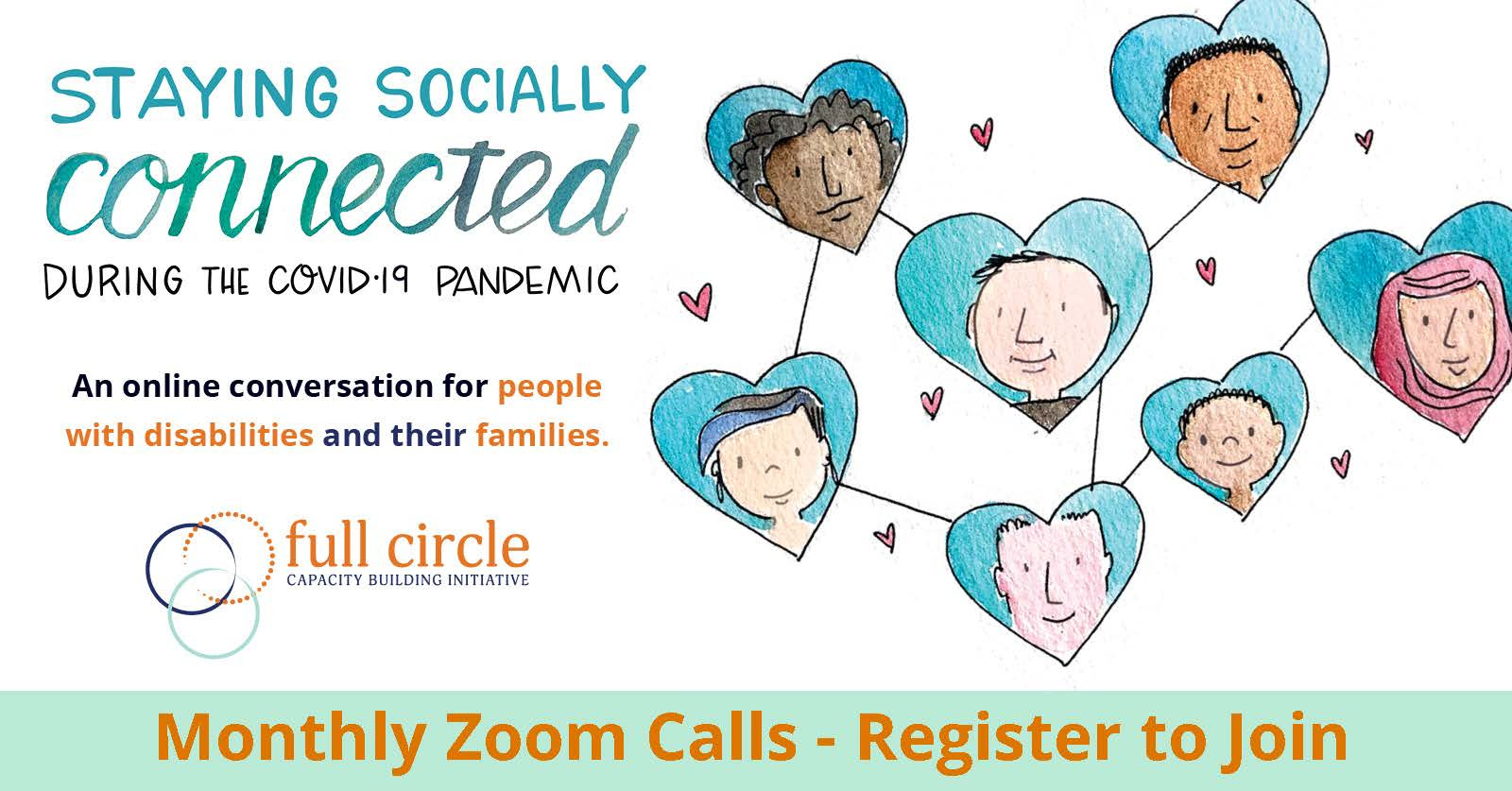 Join us for six Staying Connected During a Global Pandemic conversations. Click on each title below to register for that event.
Join us for six Staying Connected During a Global Pandemic conversations. Click on each title below to register for that event.
- Gifts - Tuesday, September 8, 2020 at 4-5 pm (EST)
Everyone has important contributions to make. This is an important part of a living good life. We will talk about understanding what your gifts are and how to use them. - Relationships - Tuesday, October 13, 2020 at 4-5 pm (EST)
A network of caring relationships is the foundation for a good life. We will be discussing good ways to grow and maintain this personal support network. - Community - Tuesday, November 10, 2020 at 4-5 pm (EST)
Being involved in the community provides a sense of belonging. We will be discussing the ways we are finding and taking part in groups, programs, and activities in our communities. - Important Considerations - Tuesday, December 8, 2020 at 4-5 pm (EST)
We discuss the type of things that are important for the people in our personal support networks to know about us in order to help us stay healthy and safe. - Goals and Priorities - Tuesday, January 12, 2021 at 4-5 pm (EST)
This conversation will be all about planning a good life for now and in the future. We will talk about the actions we can take to accomplish this. - Making it Happen - Tuesday, February 9, 2021 at 4-5 pm (EST)
Creating a work plan is the first step in achieving goals. This conversation will be about creating a plan with specific actions to accomplish the things we want to.
Who can I contact for questions?
Grantee: Janet Price-Ferrell, Executive Director, [email protected]
NCCDD: Philip Woodward, Systems Change Manager, [email protected]
Click here to download a pdf of the Natural Support Network Development initiative.
Additional Resources
PowerPoint Presentation November 2018 NCCDD Meeting (ppt)
Natural Support Network Development Year 1 Final Report (ppt)
PowerPoint Presentation November 2019 NCCDD Meeting (ppt)
Full Circle Capacity Building Initiative “Finding Connections” video with Rebecca Pauls: https://www.youtube.com/watch?v=u48VxEJpz1E&feature=youtu.be
Building Personal Support Networks: Information for Families and Friends (booklet pdf)
Building Personal Support Networks: A Planning Guide for Community Connectors (booklet pdf)
Recent Posts
Message from the Executive Director Public Policy Update (as of…
